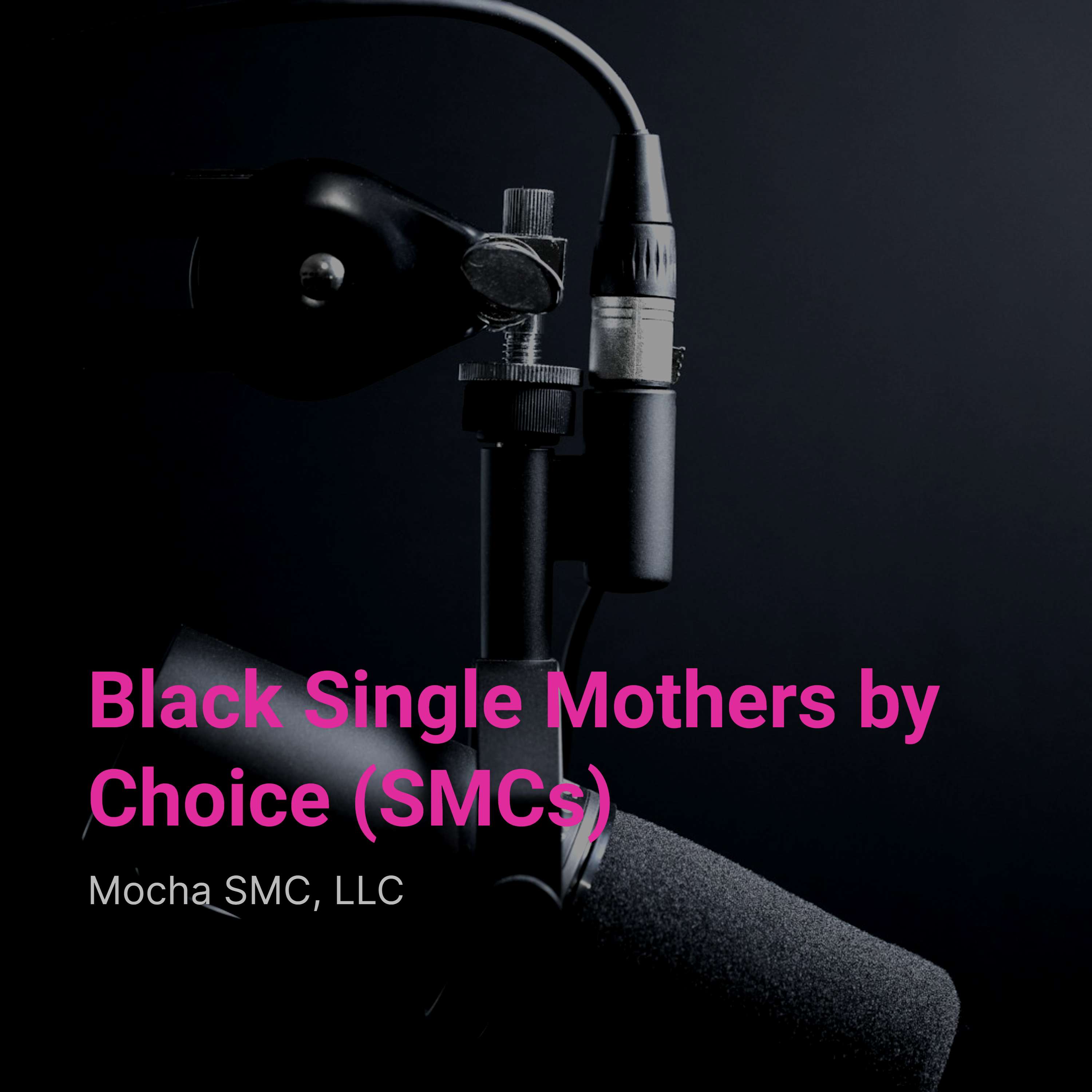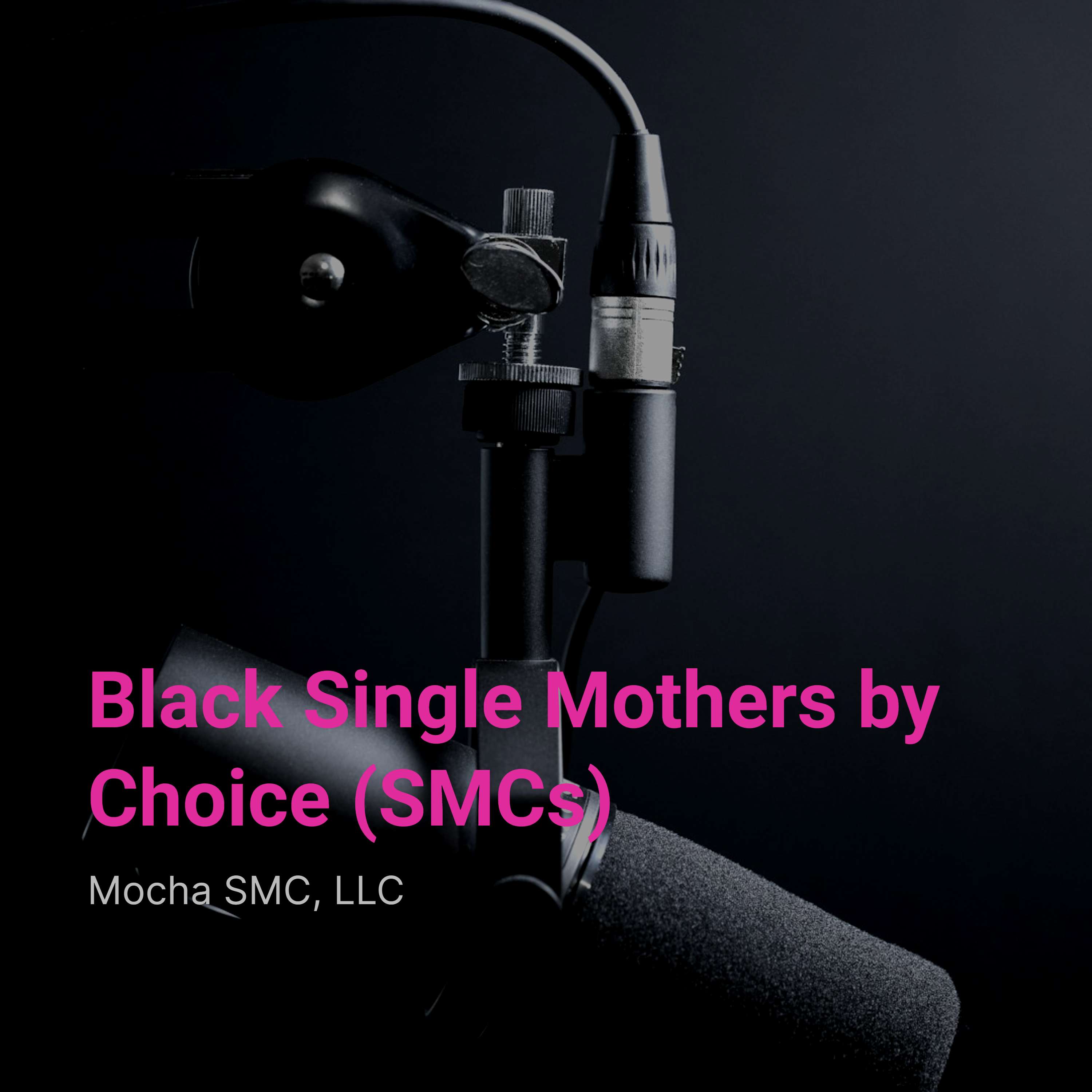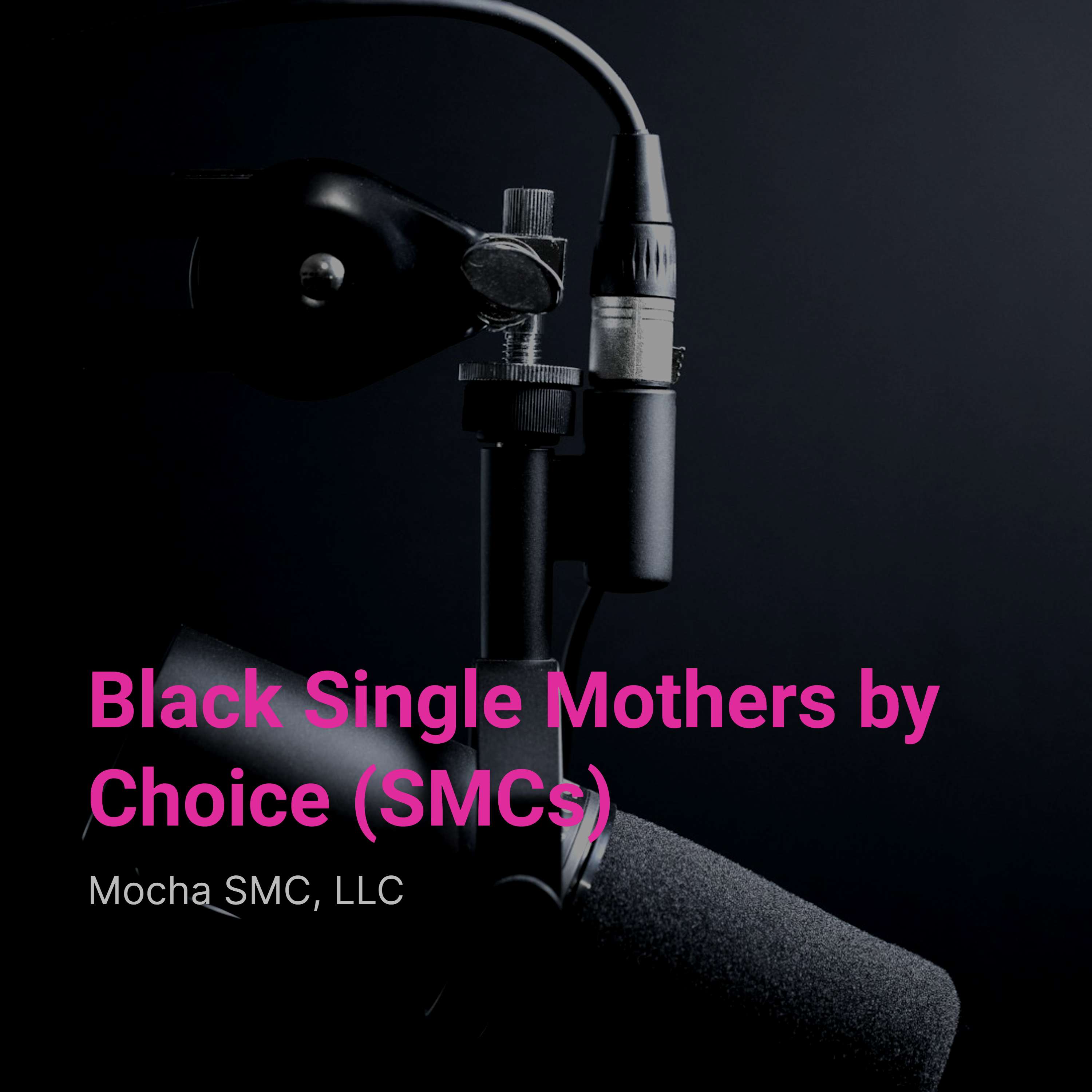[00:00:02] Hi, I'm Ayesha, and I'm a former host of Mocha's single mothers by choice, or smcs like you. As an SMC, I decided to become a mother knowing I'd be the sole care provider and parent of my children. At least at the outset, the mocha stood for black. So I'm using the word black, and I'll be discussing being a single mother by choice. From a black woman's lens, you'll connect with all the interesting and fun things about this non traditional path like this, discussing which sperm to use and some hard truths about fertility and the realities of dating as a single mother who doesn't have a co parent to rely on occasionally, and what it's actually like to parent as an SMC. This is the black single Mothers by Choice podcast.
[00:00:50] In this episode, we're going to dip a little into the medical side of being an SMC, specifically discussing some of the things that could potentially go wrong based on our experience. Again, I want to state upfront that we are not doctors, and we always recommend that you do your own research and you speak with a medical professional before making any decisions. Okay, so going from the beginning of the process, all the way toward the end, starting with. So you want to get yourself knocked up. Okay. So you decide that you want to get pregnant on your own. The assumption is that we're young, we're fertile, we don't have any fertility issues. Our only fertility issue is that we don't have a partner to provide the sperm. All right, so cool. A reputable clinic will start you off by running some blood work, doing some initial diagnostics, and examining your innards. Once you're into the SMC space, you're going to hear things like get your three day blood work done. Are you going to have an HSG? What's your amH? So all of these are indicators, external indicators of fertility. We won't know how you respond until you start trying, but your day three blood work is pretty much you go get a blood draw and they're checking your hormone levels to see if you are ready to proceed with your cycle. AmH is going to tell you the health of your ovaries. Follicle counts are going to tell you how many dormant follicles you have, and an HSG is just going to tell you how clear your internal uterine fallopian tube environment is. And so you get to determine to what extent you're going to take on any of these diagnostics. From my own personal opinion is that if you're going to put down the amount of money that you're putting down for some of these procedures, you want to give yourself the best first chance that you can. So, yeah. So it's balancing costs with maximizing each try. Yeah. And so for me, since I was a total novice, they gave me a checklist. I'm checking items off the list. HSG, day three, blood work. Go to the corner, buy coffee. And so what I found through my diagnostics is that I had a fibroid. And I'd known that I'd had a couple of small fibroids, but I had one that against the user uterine wall, and that could potentially negatively impact an embryo implanting. And first thing I knew I needed to do was to get that fibroid removed. And so that was my, probably my second invasive procedure because I had the HSG that showed that I had the fibroid. And so I got the fibroid removed before I proceeded further with my first pregnancy. And then also during my second pregnancy, the workup, oh, I was a disaster then, and so had a miscarriage already. I had retained placental tissue, which caused just a catastrophic cascade of events. And so, for those of you who don't know when you're pregnant, there are a few different systems that are involved in the pregnancy, right? There's the endocrine system, which are all of the hormones, pituitary gland, the insulin. All of those things get triggered your immune system, and pretty much all of those came into play with my second pregnancy. They played a big role after having a number of miscarriages, is I silently slipped into a pre diabetic stage, where having uncontrolled diabetes could negatively impact a pregnancy. I also had an immune response with the delivery of my first daughter, which I did not know of. That caused a lot of catastrophic events and miscarriages along my journey. And so we'll get into that. With both of my pregnancies, I had a challenge. So with my first pregnancy, it was fairly textbook until the delivery. And my daughter was delivered, strongly jaundiced. So they ran some tests and they found that she had hemolytic disease of the newborn, which basically means that my immune system attacked her blood. And, yeah, so she spent a good week in the hospital. She was under five uv lights, naked, just to process out the bilirubin that built up and was giving her the yellow coloring. And so what I didn't know at the time, and what I strongly suspect is that because my immune system was activated during that pregnancy, that I maintained antibodies against my daughter's type a blood and I'm type o. And so when I went to try for my second daughter, I used the same donor that I used for my daughter, which had type ab blood, and I'm type odd. So being a biologist and knowing what I know now, I needed to not have any type a embryos implant because they would not survive. So my first miscarriage was with my first ivf in my attempt for my second daughter, and I miscarried at eight and a half weeks. I miscarried naturally, but I maintain a bit of placenta, which caused me to continue to bleed periodically, probably for a few weeks. And so this is where choosing the right fertility clinic comes into play, because my fertility clinic dropped the ball in terms of communicating with me, because they have to track you and monitor your hcg levels until they get down to zero. And so they had stopped reaching out to me, I had stopped reaching out to them. And so then I didn't realize I hadn't retained placental tissue. I was so devastated over the entire experience. This was a real low point. And I needed to find a fertility clinic that was gentle in their approach to how they handled their patients. And so I found an off the beaten track fertility clinic. This woman was about to retire and she said, I'll take you on as a client. And she let me talk. We did talk therapy. She ran tests and she found that I had retained placenta tissue. So she tracked my HCG down and she was just like, you need to go and get a DNC. And so she was like, I can't do that. You have to go back to your original clinic. So I was in limbo for a while, but she advocated for me. She wrote to that previous doctor, she's, you need to fix this. This is your problem. You need to correct this. And they were like, they don't know if it's their pregnancy. And so she was just like, no, you need to fix this. She came to me on this, this date, blah, blah, blah. And so she advocated for me. Eventually, I went to my own ob Gyn, who I had a relationship with. They did a DNC, they ran the genetic testing. It was a genetically normal girl. So that was my experience. So I had tried a couple more times with the same donor, and I was just like, I need to switch clinics. I need to. I need to change donors sperm. So I changed donor sperm because I suspected what was going on, but nobody else would put any weight in immunity aspects of trying to conceive and then also be aware that a lot of the fertility industry does not give weight to the immunity aspects of pregnancy. And so in the african american community, we do have occurrences of autoimmune diseases. If you are dealing with an autoimmune disease, I would probably ask your reproductive endocrinologist specific questions with how much weight and how do they handle the autoimmune aspects? Right. Because we're coming up to, if you are not getting pregnant, what could possibly go wrong? But before I hop to that, I did end up being successful with switching to a donor that had my blood type. I ended up having a beautiful baby girl on the first try with that donor, advocating for myself, and having a medical provider who advocated for me, I ended up achieving success. So you're trying to get pregnant and it's not happening. What could possibly be going wrong?
[00:08:52] All right, so there are a few things that you want to look at. You're fairly healthy. Nothing showed up on your fertility diagnostics in terms of needing to be fixed. So there's the egg sperm aspect.
[00:09:05] Something could either be wrong with eggs. You could be an older mom who's trying. There could be an issue with the sperm. It could be low motility. It could just not be high quality sperm. When you choose your sperm donor, when you go to do an IUI, your doctor is going to give you some stats on your sperm, the motility, the count. Some of us are type a people, so we jot all of this down. So you got the egg and sperm. So once the egg and sperm meet up, do they fertilize? So that's another aspect, implantation. So now that the embryo is created, how well does it implant or adhere to your uterus? And then there's the embryonic development. So is the embryo a normal embryo, causing it to develop normally? So any one of these elements of fertility could impact your success factors or could be a reason why you are not getting pregnant. And you can kick these apart. A reputable reproductive endocrine will have that conversation with you and talk about different things that you can try. I tried some experimental things with my successful cycle. Like, I tried an HCG wash. I tried a uterine scratch. So, look, final clinic that I went to was like a spa. So they had a whole free transfer package. And yeah, I did all of that. All right, so you're pregnant, right? That's what we all get to, that BFP, that big fat pregnancy, and you got your reward. Your past, the first trimester, you're glowing. What could possibly go wrong?
[00:10:39] A lot. So for me, my second pregnancy, it was hard conceiving, and then the second trimester. First trimester was fine. Everything was a breeze. I hit my 28 week checkup, 30 week checkup, where they got concerned that the baby looked small, and so they were like, I wouldn't worry about it. We'll check you in your next four week checkup, and we'll see where the baby is. And hopefully she recovered, but she did not. And so that was a devastating visit because they immediately made an appointment for me with the maternal fetal specialist, the MFM. And when I went to that appointment at probably 36 weeks, they thought that the complication would lead to microcephaly. And if you're familiar with the Zika stories, that means a small, obviously small head size. And unfortunately, they couldn't make the diagnosis through pre delivery mechanisms. So I had to wait until my daughter was delivered in order for them to make a final diagnosis. That was challenging. And so I absorbed that.
[00:11:50] I leaned on my village to get me through that period. And that day, I cried, but I had to be done by 05:00 because I had to pick up my big girl. And so I made the decision. In that moment, after I cried my tears, I was like, I can't do anything now. I'm not going to allow my joy to be stolen. I'm going to love this baby. And I wasn't prepared for the prospect of having a special needs child, but God gave her to me, and so I was going to do my best to be that child's mom. Now, thankfully, my baby was born with a big, giant head. She was small. She was five pounds 12oz, compared to seven pounds 12oz for her sister. But she recovered that weight and then some in two weeks. And so she's thankfully a very healthy, vocal, rambunctious little girl. But those are just some of the things that can go wrong. The stats. Black women are, what, three times more likely to die from complications due to birth or post birth situations than any other ethnic group. So for me, I would recommend advocating for yourself. Starts at step negative one. Right the moment you know that you're going to be doing this on your own, you start evaluating your medical team. Like, how do you like your ob gyn? How do you like your reproductive endocrinologist when you get one? How are they at listening to your concerns and giving you space to. To express those concerns? Do they make you feel comfortable? I would recommend that you use your entire appointment time. If they say, do you have questions? I have questions. Even stuff that come up in the moment have questions? Do you have any concerns? I know when I was worried about my daughter's size, I let my medical team know I'm concerned. I cried. I'm not this strong black woman. I am concerned. I am vulnerable. I cannot go home without a baby. Both me and the baby need to come home alive because I have a. A five year old, right. And so I made sure that my medical team knew my situation so that when it came time for delivery, they talked it over with me. My OB was like, look, this baby is not coming as fast as we'd like her to. We want to try this other med. The other option is a c section, but I don't want to give you a c section and send you home to recover with a five year old at home and a newborn. So we're going to try this new med. Are you okay with that? We talked through some of the implications and we moved ahead with the additional medication, and it worked. So you start interviewing your medical team fairly early on so that if they are there for you, you need to let them know you're going to partner with them. Because you're an SMC, you're going to partner with them. They should know your home situation and then also make sure your village is out for you and advocating for you in the delivery room. All right, I hope you enjoyed this discussion and insight into the complications that could potentially arise. Tips for how you can advocate for yourself to that thank you for joining us this week. If you like what you heard, please share it with your social media circle. Tell your grandma, tell your mama, tell your friends, tell your coworkers, and for now, goodbye.
[00:15:02] Well, Pod, thank you so much for taking the time to listen. If you like what you heard, please share this podcast with your girlfriends and I'd love to hear your thoughts about the topics covered in this episode. So email me at
[email protected] and if you found value in the topics covered, consider making a donation using the link in the show notes below. Till next time, Pod. Bye now.


